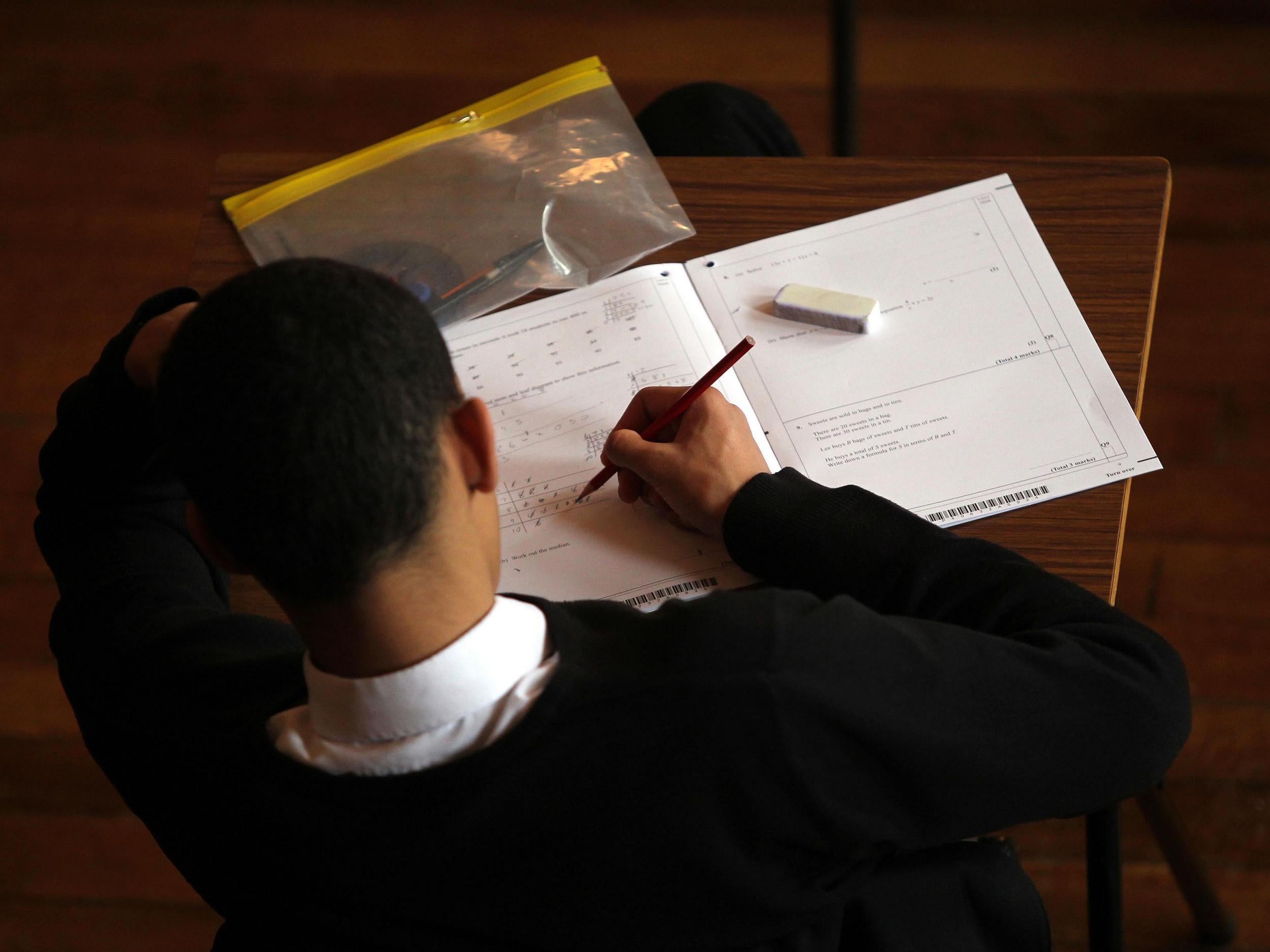Black students will suffer most from A-level cancellations – they routinely outperform their predicted grades
Relying on predicted rather than real grades leaves the field wide open to further discrimination


As Covid-19 sweeps the UK, it’s leaving a huge amount of uncertainty in its wake. One such question that remains unanswered surrounds the futures of Britain’s GCSE and A-level students.
Earlier last week, prime minister Boris Johnson and education secretary Gavin Williamson announced that schools would be closing and exams not taking place in England this summer.
One of the most serious challenges this presents is for Year 13 students whose university offers are conditional on their A-level results. On Friday, the Department of Education outlined that they will now be working with exam regulator, Ofqual, exam boards and teachers to provide universities with predicted grades: “the grade that they believe the student would have received if exams had gone ahead”. These grades, the department announced, “will take into account a range of evidence and data including performance on mock exams and non-exam assessment.”
The details of the predicted grade process itself are not yet clear, but one thing already is: this approach will be detrimental for marginalised students hoping to start university this autumn, particularly black students.
A 2016 study carried out by University College London’s Institute of Education found that just 16% of predicted A-level results are correct; only one in six university applicants will achieve the grades they were predicted. Nor is this inaccuracy distributed equally across different racial groups. 2011 research by the Department for Business, Innovation and Skills found that black applicants had the lowest predicted grade accuracy, with only 39.1 per cent of predicted grades accurate, while their white counterparts had the highest, at 53 per cent. Furthermore, the study found that black students are most likely to have their grades not just mispredicted, but underpredicted.
We might trace this trend to anti-black unconscious biases perpetuated by teachers, which can affect everything from how they’re disciplined at school to how their work is assessed. Education thinktank LKMco’s has found that non-black teachers (according to government figures, 85.9% of all teachers in English state schools were White British in 2018) tend to have lower expectations of Black students, and are likelier to negatively judge or more severely discipline pupils from minority ethnic backgrounds.
Earlier this year, The Independent reported that “schools are unfairly punishing black students for their hairstyles, wearing bandanas and kissing teeth” thanks to targeted behaviour and uniform policies, lack of cultural awareness and anti-black negative perceptions held by teachers. At the sharp end of the disciplinary spectrum, Black Caribbean students are three times more likely to be permanently excluded from school than other children. Within an education system mired in anti-blackness, it’s apparent that poorly-predicted grades are just one of the many implements that can be wielded against black students.
When I tweeted my frustration at the government’s exam cancellations on Friday, a number of black people responded with their own experiences with teachers who believed they had limited potential. Many highlighted how they had received low predicted grades, only to go on to attain higher grades in their exams.
Mr Williamson has said that students will be able to appeal their grades, and will have the opportunity to sit an exam at the earliest opportunity once schools are up and running again – however the details of this are yet to be announced. It’s also unclear how universities will go about deciding how to offer places, considering that universities make more offers than they have places due to over-predicted grades. In the absence of official exam results, which often give students an opportunity to counter underpredicted grades, how will admissions tutors and administrative teams ensure that this abnormal application process doesn’t operate an anti-black bias?
“We might make around 30,000 offers for 6,000 places,” Professor Sir Steve Smith, vice-chancellor of Exeter University, tells The Telegraph. “Of course, not everyone accepts the place and not everyone who accepts gets the grades. This year we won’t have the normal sifting process after results day. How will we deal with that? There is quite a lot to play for.”
He’s right – there is a lot to play for, and considering the long-documented anti-blackness of the education system, the stakes for black students are even higher.
Join our commenting forum
Join thought-provoking conversations, follow other Independent readers and see their replies
Comments
Bookmark popover
Removed from bookmarks